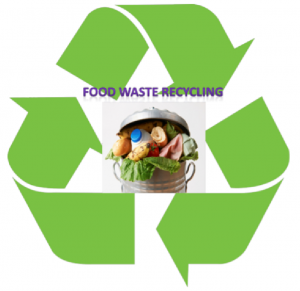Combating Food Waste – Pope Francis’s address to the European Food Banks Federation:
“It is scandalous today not to notice how precious food is as a good, and how so much good ends up so badly.”
(Food & Wine, Nov. 13, 2019)
 A society that super sizes food portions, it’s no wonder food in this country is wasted. Just how much may shock you. A 2010 research study done by the USDA found that 31% of the US food supply ends up in a landfill! Surprising as this figure may be, food loss is compounded by all of the resources used to produce, package, ship and sell the food are also lost every time we throw away food. Wasted food contributes to global warming. According to the World Resources Institute, “food waste is responsible for 8% of annual greenhouse-gas emissions.” (Time Sustainability, p. 53)
A society that super sizes food portions, it’s no wonder food in this country is wasted. Just how much may shock you. A 2010 research study done by the USDA found that 31% of the US food supply ends up in a landfill! Surprising as this figure may be, food loss is compounded by all of the resources used to produce, package, ship and sell the food are also lost every time we throw away food. Wasted food contributes to global warming. According to the World Resources Institute, “food waste is responsible for 8% of annual greenhouse-gas emissions.” (Time Sustainability, p. 53)
To combat food waste buy only what you need. Carefully plan your shopping list and stick to it. Keep track of expiration dates. Prioritize items according to expiration dates when planning meals. You don’t have to throw away food that hasn’t actually turned bad. “Expiration” and “sell by” dates are food safety guidelines. Use your senses to determine if the food is edible by checking its color, texture, smell or taste. Donate the excess food to a local food pantry before its expiration date.
Imagine if each family were to drastically reduce their food waste and donate the money saved to their local food bank! The Natural Resources Defense Council estimates that food waste costs “…the average American family of four roughly $1,500 a year.” (Time Sustainability, Oct 2020 p.53)
If we do our part, we can better use our planet’s resources and even feed a few more people. We can make a difference here at home, using our Wellesley RDF guidelines! Please consider it as a Lenten practice?
Thank you.
